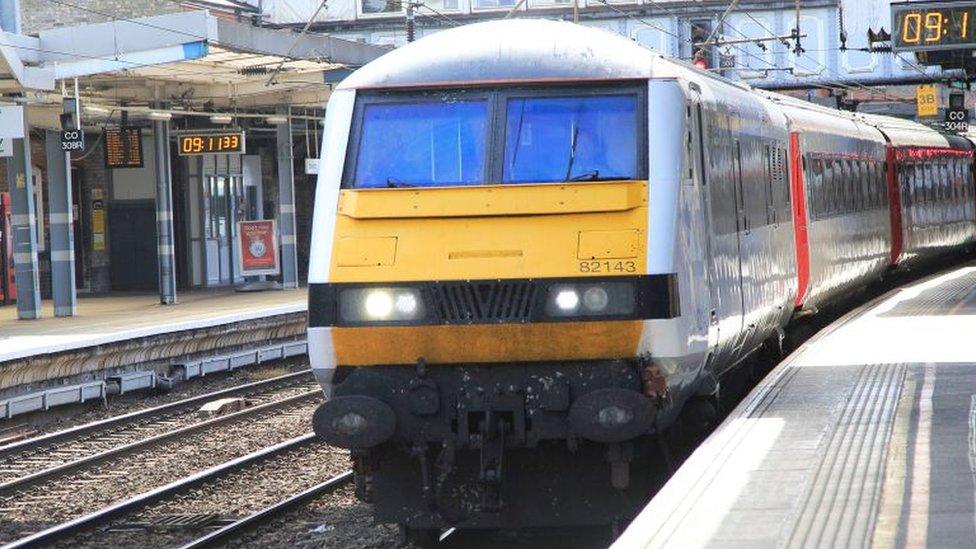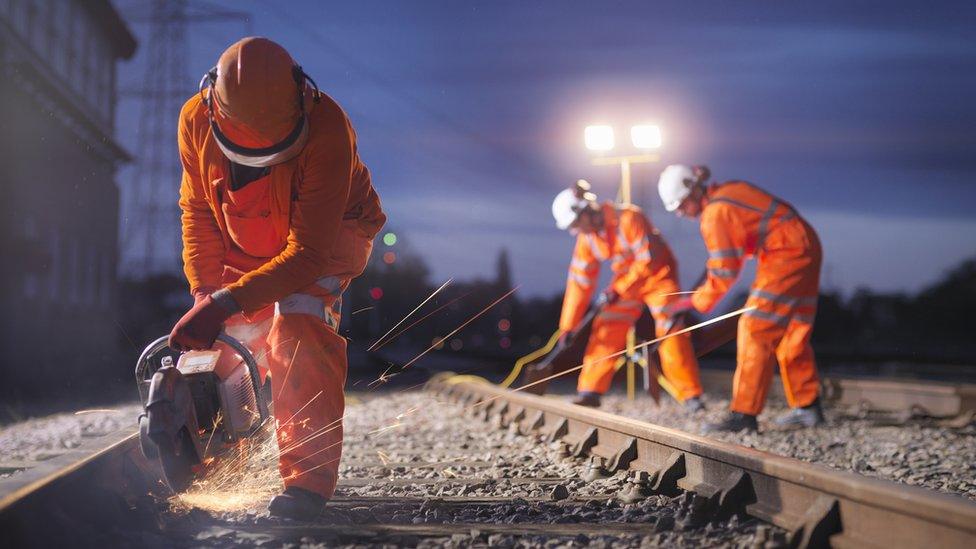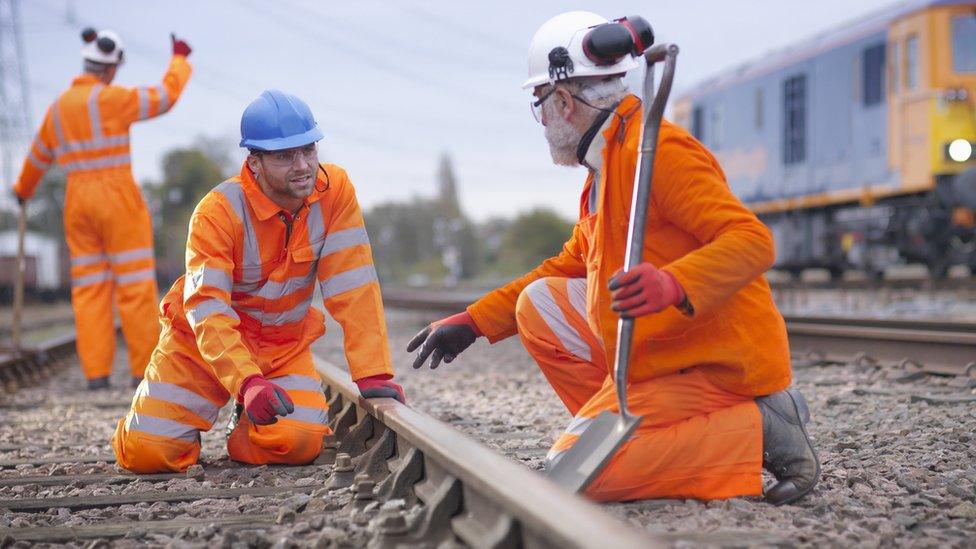Train drivers to join other rail workers on strike
- Published
- comments

Train drivers are set to join thousands of other rail workers on strike threatening more major disruption to services in June and July.
Aslef, Britain's trade union for train drivers, announced strikes at three companies in rows over pay.
It comes after the RMT Union, which represents guards and other railway staff, said 40,000 workers from Network Rail and 13 train firms would walkout.
The separate strikes are expected to cause severe disruption across the UK.
Train driver members of ASLEF will hold their own strike over pay on 26 June at Hull Trains, at Greater Anglia on 23 June, and on Croydon Tramlink on 28, 29 June and 13 and 14 July.
Meanwhile, RMT workers will take their industrial action on 21, 23 and 25 June after talks over pay and redundancies fell through.
Mick Whelan, general secretary of Aslef, said its members had not had a pay rise since 2019 and the union wanted drivers an wage increase "in line with the cost of living, so that we are not, in real terms, worse off".
"We are not naive. The train companies are doing very well out of Britain's railways - with handsome profits, dividends for shareholders, and big salaries for managers - and we are not going to work longer, for less," he said.
The various planned strikes coincide with several large events, ranging from Glastonbury Festival, which runs from 22 to 26 June, to a cricket Test match between England and New Zealand taking place from 23 to 27 June.
The industrial action has been described as the "biggest rail strike in modern history".
Downing Street has called the strikes "selfish" and warned such action would inflict pain on passengers during "really tough times".
Meanwhile leaders across the theatre, live music and hospitality industries have said the move will have a devastating impact on businesses recovering from the coronavirus pandemic.

RMT has said Network Rail plans to cut up to 2,500 jobs as part of a £2bn reduction in spending, with the proposed job cuts including workers who maintain tracks, signals and overhead lines among other things.
It also claimed train operators had been subject to pay freezes and changes to their terms and conditions.
However, Network Rail has said no proposals have been put forward.
Aslef has already agreed a 5% pay deal for drivers at Scot Rail after negotiations.
Elsewhere, the Transport Salaried Staffs Association (TSSA) has said it will ballot hundreds of workers for industrial action at train operator Avanti West Coast in a dispute over pay, conditions and job security.
TSSA is demanding from Avanti a guarantee of no compulsory redundancies for 2022, no unagreed changes to terms and conditions, and a pay increase which reflects the rising cost of living.
Voting will start on June 15 and close two weeks later, with the union saying strikes could start in mid-July if there is support from members.
Related topics
- Published7 June 2022

- Published8 June 2022
